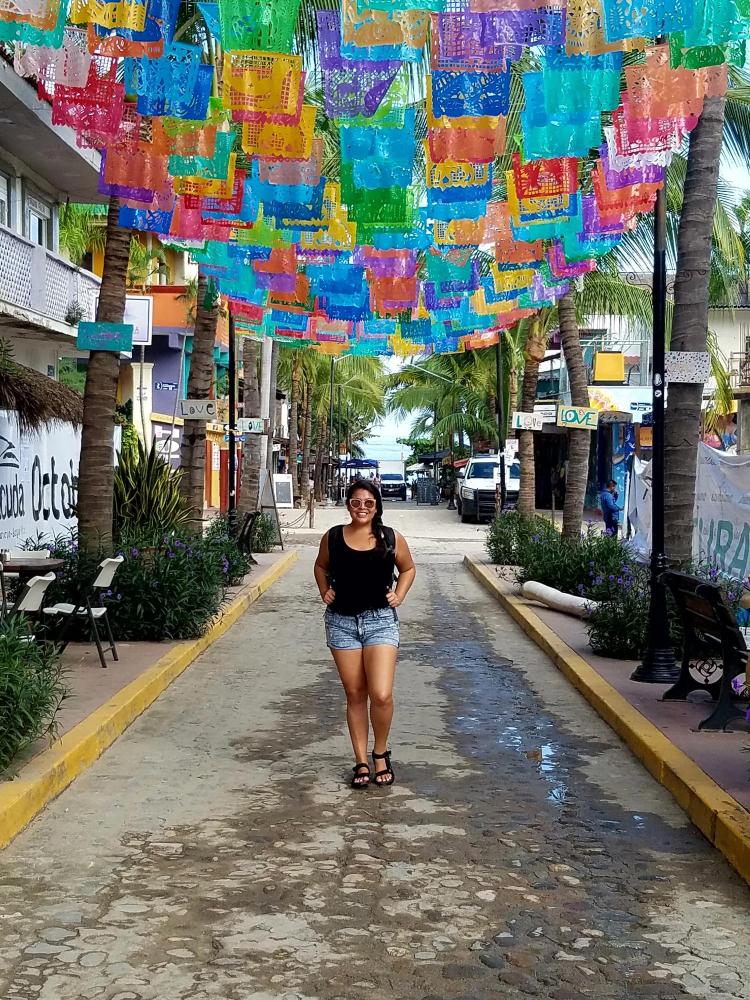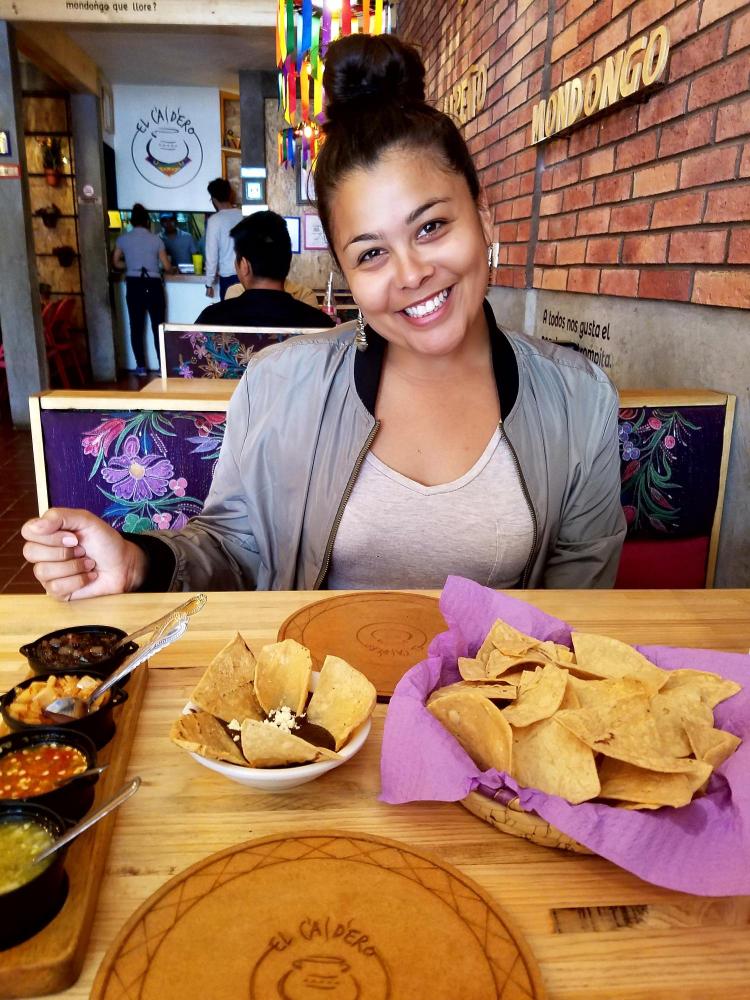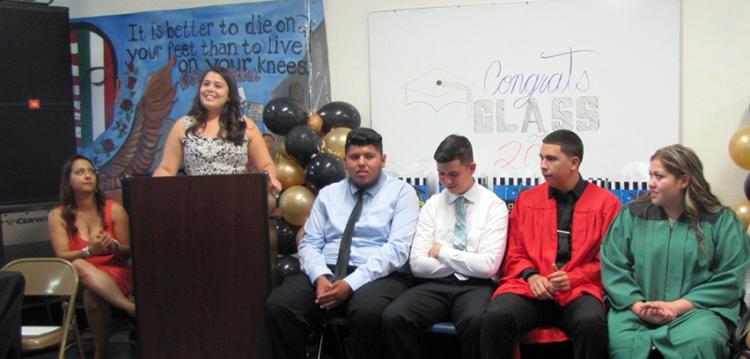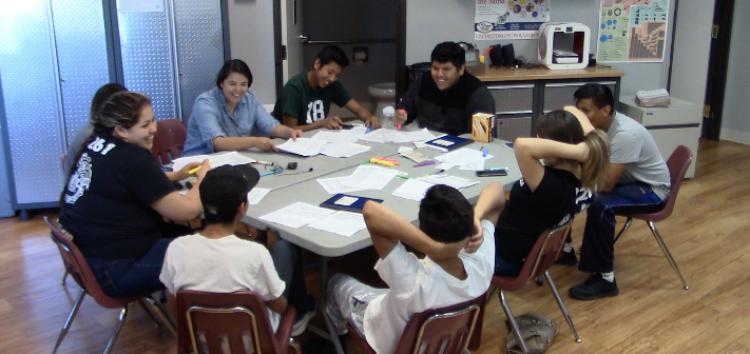Meet Mónica González Ybarra, 2018 Outstanding Doctoral Graduate

“I had this awesome resume — I was captain of the dance team, and I did a lot of community work where I lived — but the teachers and guidance counselor didn’t know that,” she said. “My experiences reflect racialized realities for students of color. Now, I have the tools to systematically disrupt it, and I want to share it with my students.”
Now, the CU Boulder School of Education’s Outstanding Doctoral Graduate and a PhD graduate in the Literacy Studies program, González Ybarra has incorporated her experiences into her community work and research.

The youth in her study cross and navigate borders, their families have been displaced by colonial projects, many of their lives have been criminalized, and their humanity called into question. González Ybarra’s work is an urgent call within educational systems to highlight the ways in which (im)migrant young people are producers and holders of knowledge and, above all, are human. Her dissertation title begins with a telling comment from a youth in the program, “Here, I already feel smart.”
“It captured what I was doing,” she said. “For young people, when we acknowledge their knowledge and center their voices outside of the classroom, we have the power to shift what they think about themselves. That’s why I love working outside of schools, because we can reimagine what learning looks like.”
Her work was awarded two highly competitive and prestigious national fellowships: the Cultivating New Voices Fellowship through the National Council of Teachers of English and the AERA Minority Dissertation Fellowship, awarded to just six scholars nationwide.
What González had not fully anticipated in her study, was how she would be fully welcomed as a “part of the family,” and those bonds with youth continue to inspire her. That’s who she will be thinking about when she walks across the stage at graduation.
“Young people, without a doubt, drive my passion for my work,” she said. “I am inspired by them, their knowledge, their voices, and the creative ways they express themselves everyday. Youth can teach us so much about re-imaginging social justice projects and creating spaces that are dedicated to the experiences, lives, and bodies that are continuously placed at the margins.
“It is through this work that I am able to remain hopeful for radical sociopolitical change and continue to work amidst the struggle towards justice."

How has your choice to attend the CU Boulder School of Education been influential on your life and your future?
The relationships I have cultivated during my doctoral experience at CU Boulder School of Education have been most influential in my personal and professional life during the past five years. The mentorship I received from faculty, especially Elizabeth Dutro and Ben Kirshner, across the stages of the doctoral process has been so important in shaping my scholarship and engagement in the academic community. My mentors have not only supported my academic endeavors but have demonstrated a deep sense of care and commitment to my overall wellbeing and success. They serve as models for the kind of mentor I hope to be as a faculty member for graduate students in the future. Additionally, the friendships that came from my time at CU Boulder further expanded my academic community and sustained me throughout my doctoral studies —this includes my cohort members, doctoral students across cohorts before and after me, and our amazing School of Education staff members. I know these relationships will continue to flourish. I am also tremendously thankful to have worked with two dedicated and inspiring Deans, Lorrie Shepard and Kathy Shultz who have shown their commitment to me as a student at every stage of my career. One of my favorite things about the school is our close-knit community—I know my doctoral experience would not have been the same anywhere else.
What is next after graduation?
I am excited to begin my faculty career as a Visiting Assistant Professor at the University of Texas, El Paso in the department of English. I am looking forward to working at a Hispanic Serving Institution on the Mexico-U.S. border and seeing how this will shape my work with Chicanx/Latinx immigrant/migrant youth.
What’s your advice for incoming students?
A quote from Gloria Anzaldúa comes to mind, “Do the work that matters, vale la pena.” My advice for incoming PhD students is, do your heart's work. Find mentors who will support you in doing that. Do good work. Do work that the community you are working with will be proud of. This doctoral process can be long and hard, you have to love what you do and the people you are doing it with. Be true to yourself and take care of yourself, always.


